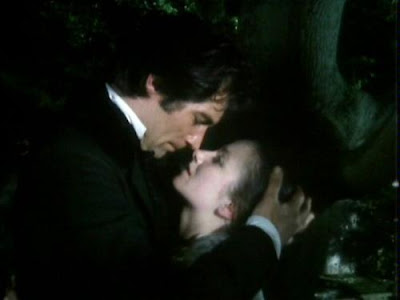
Last September, a new series based upon Nelson Johnson's book about the famous New Jersey coastal city during the Prohibition Era, "Boardwalk Empire: The Birth, High Times, and Corruption of Atlantic City", premiered on HBO. Created by Terence Winter and produced by him, Mark Walhberg, and Martin Scorcese; "BOARDWALK EMPIRE" starred Steve Buscemi, Kelly Macdonald, Michael Pitt and Michael Shannon. Below is a list of my top five (5) favorite episodes from the series' first season:
"BOARDWALK EMPIRE": TOP FIVE FAVORITE SEASON ONE (2010) EPISODES

1. (1.09) "Belle Femme" - This episode about Enoch "Nucky" Johnson's efforts to deal with the threat of a Democratic mayoral candidate screaming corruption and the D'Alessio gang; his mistress Margaret Schroeder promises to help a former employer; and Jimmy Darmody's return from Chicago proved to be my favorite episode this season.

2. (1.10) "The Emerald City" - Nucky asks for Margaret's assistance in backing his mayoral candidate with the passage of women's right to vote, leaving her conflicted about her role as his mistress. He, along with Chalky White and Jimmy confront Meyer Lansky and two of the D'Alessio brothers. Jimmy's common-law wife, Angela Darmody, witnesses his violent side against her photographer friend, and Federal agent Nelson Van Alden grapples with his emotions and has forceful encounters with both Margaret and Lucy.

3. (1.01) "Boardwalk Empire" - The ninety (90) minute series' premiere episode introduced Atlantic City treasurer, Enoch "Nucky" Johnson at the dawn of Prohibition in January, 1920; and his plans to make himself and his associates very rich from the bootlegging business.

4. (1.04) "Anastasia" - Michael Kenneth Williams has a field day in this episode in which his character, Chalky White extracts vengeance from a local Ku Klux Klan leader for lynching one of his men. And in Chicago, Jimmy and Al Capone expand their business operations by taking over territories from a local Irish gangster, resulting in vicious consequences for a prostitute that Jimmy was fond of.

5. (1.11) "Paris Green" - This episode featured many shake-ups in the relationships of Nucky and Margaret; Van Alden and his assistant, Agent Sebso; Jimmy and his relationships with his real father, the Commodore, Nucky, and Angela.
























































